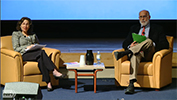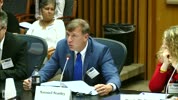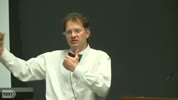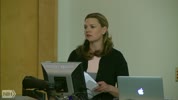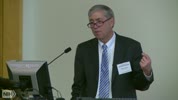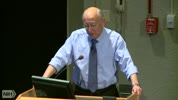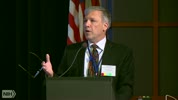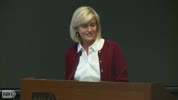-
- NIH VideoCast - Panel Discussion: Social Inequalities in Health
-
- - Ann Morning, PhD New York University, Dorothy Roberts, JD, University of Pennsylvania, Jo Phelan, PhD, Columbia University (2015/05/12)
- - Category : BSSR - Behavioral and Social Sciences
- BSSR Lecture Series
The NIH Office of Behavioral and Social Science Research will host the Panel Discussion: Social Inequalities in Health, on May 8, 2015, at the NIH Campus, as part of the 2014-2015 BSSR Lecture Series to promote open and engaged discussion about cutting edge research in the behavioral and social sciences field.
Panelists:
Ann Morning, PhD New York University
Dorothy Roberts, JD, University of Pennsylvania
Jo Phelan, PhD, Columbia University
REGISTER NOW: https://eventbrite.com/event/15535983545
NIH VideoCast - Panel Discussion: Social Inequalities in Health
-
- NIH VideoCast - Stephen E Straus Distinguished Lecture in the Science of Complementary Health Therapies: When Experts Disagree - the Art of Medical Decision Making
-
- - Jerome Groopman, M.D., Harvard Medical School and Pamela Hartzband, M.D., Harvard Medical School (2015/05/12)
- - Category : National Center for Complementary and Integrative Health
- On May 11, the National Center for Complementary and Integrative Health (NCCIH) will hold the annual Stephen E. Straus Distinguished Lecture in the Science of Complementary Health Therapies. Speakers, Jerome Groopman, M.D., the Dina and Raphael Recanati chair of medicine at Harvard Medical School and chief of experimental medicine at Beth Israel Deaconess Medical Center and Pamela Hartzband, M.D., assistant professor of medicine at Harvard Medical School and attending physician in the division of endocrinology at Beth Israel Deaconess Medical Center will present ???When Experts Disagree: The Art of Medical Decision Making.??? The husband-and-wife team will present a new way to make the best medical decisions. They reveal that each of us has a ???medical mind,??? a highly individual approach to weighing the risks and benefits of treatment. To ascertain our unique medical minds, they will present probing questions. Are you a minimalist or a maximalist, a believer or a doubter, do you look for natural healing or the latest technology? Drs. Groopman and Hartzband explain how pitfalls in thinking and the way statistics are presented in pharmaceutical advertisements, the news media and even scientific reports can mislead all of us. The talk will demonstrate the contrast between the role of population guidelines with the care of the individual, and explain the complexities of end of life care ??? all factors that contribute to a person???s ???medical mind.??? In their talk, Drs. Groopman and Hartzband will weave vivid narratives from real patient experiences with insights from recent cognitive research to demonstrate how to arrive at choices that serve the individual best. Dr. Groopman???s research interests include studying how viruses cause immune deficiency and cancer, the role of endocannabinoids in hematopoiesis, mechanisms of liver injury due to hepatitis c, and the effects of novel cell cycle inhibitors against mantle cell lymphoma. He has been integral in developing many AIDS-related therapies. Dr. Hartzband???s clinical interests include thyroid disorders, adrenal and pituitary disorders, osteoporosis, and calcium disorders. Together, Drs. Groopman and Hartzband co-authored the book ???How Doctors Think??? and write a monthly column for the American College of Physicians??? publication ???ACP Internist.??? The lecture series was established in honor of Stephen E. Straus, M.D., founding director of NCCAM and an internationally recognized clinician-scientist. Under his leadership, research of complementary health therapies grew threefold. In addition to serving as NCCAM director, Dr. Straus was senior investigator in the Laboratory of Clinical Investigation at the National Institute of Allergy and Infectious Diseases. This event is supported by the Foundation for the National Institutes of Health with generous funding from Bernard and Barbro Osher. The lecture begins at 10 a.m. in Masur Auditorium, Building 10. All are invited to attend. It will also be videocast on http://videocast.nih.gov
For more information go to http://nccam.nih.gov
NIH VideoCast - Stephen E Straus Distinguished Lecture in the Science of Complementary Health Therapies: When Experts Disagree - the Art of Medical Decision Making
-
- NIH VideoCast - Is Inflammation a Hallmark of Aging?
-
- - Luigi Ferrucci, M.D., Ph.D., Chief, Longitudinal Studies Section, NIA, NIH (2015/05/10)
- - Category : Geroscience
- GeroScience Interest Group
The Trans-NIH GeroScience Interest Group (GSIG) cordially invites you to its spring seminar, featuring Dr. Luigi Ferrucci. Dr. Ferrucci is a geriatrician and epidemiologist who conducts research on the causal pathways leading to progressive physical and cognitive decline in older persons. Dr. Ferrucci has made major contributions in the design of many epidemiological studies conducted in the U.S. and in Europe, including the European Longitudinal Study on Aging, the "ICare Dicomano Study," the AKEA study of Centenarians in Sardinia and the Women`s Health and Aging Study. He was also the Principal Investigator of the InCHIANTI study, a longitudinal study conducted in the Chianti Geographical area (Tuscany, Italy). After serving for several years as Director of the Baltimore Longitudinal Study on Aging (BLSA). Dr. Ferrucci became the Scientific Director of the NIA???s Intramural Research Program in 2011.
The GeroScience Interest Group (GSIG) was formed to enhance opportunities for discussion of the intersection between the biology of aging and the biology of disease and conditions that are of interest across ICs. It is focused on basic biology, but with a longer view towards translation. If you are interested in learning more, please visit the GSIG web site (http://sigs.nih.gov/geroscience/Pages/default.aspx).
For more information go to http://sigs.nih.gov/geroscience/Pages/default.aspx
NIH VideoCast - Is Inflammation a Hallmark of Aging?
-
- NIH VideoCast - CC Grand Rounds: The Ethics of Caregiving: Provider Challenges and Balancing Obligations
-
- - (1) Leslie Wehrlen, RN, MSN, OCN CDR, United States Public Health Service Nurse Specialist, Research, Nursing Research and Translational Science, Nursing Department, CC, NIH and (2) Margaret Bevans, PhD, RN, AOCN, FAAN CDR, United States Public Health Service Clinical Nurse Scientist and Program Director, Scientific Resources, Nursing Research and Translational Science, Nursing Department, CC, NIH (2015/05/08)
- - Category : Clinical Center Grand Rounds
- CC Grand Rounds: The Ethics of Caregiving: Provider Challenges and Balancing Obligations
For more information go to http://www.cc.nih.gov/about/news.grcurrent.html
NIH VideoCast - CC Grand Rounds: The Ethics of Caregiving: Provider Challenges and Balancing Obligations
-
- NIH VideoCast - Glycans that regulate development and notch signaling
-
- - Pamela Stanley, Ph.D., Albert Einstein College Medicine (2015/05/08)
- - Category : WALS - Wednesday Afternoon Lectures
- NIH Wednesday Afternoon Lecture
Notch signaling occurs when cell surface Notch receptors are stimulated by Notch ligands on an apposing cell. This interaction leads to release of the Notch receptor intracellular domain which complexes with several factors in the nucleus to induce the expression of Notch target genes. A large variety of cell fate decisions depend on regulated Notch signaling during development and differentiation in mammals. Thus, several human diseases and cancers arise from the malfunctioning of Notch signaling pathways. Diseases range from skeletal deformities to heart disease to a variety of cancers. The O-fucose glycans attached to the extracellular domain of Notch receptors play critical but ill-defined roles in the regulation of Notch signaling. In their absence, mouse embryos die at mid-gestation with defects typical of a loss of signaling through all four Notch receptors. O-fucose on Notch receptors is elongated by the addition of another sugar GlcNAc by one of three Fringe GlcNAc-transferases. Dysregulation of Notch signaling by altered glycosyltransferase gene expression has been associated with developmental defects and cancer prognosis. The Stanley laboratory is working to understand molecular mechanisms by which O-fucose glycans and the different Fringe activities regulate Notch signaling. A particular challenge is that there are three Fringe genes, often expressed together in a given tissue. Stanley`s lab has used genetic strategies to generate cultured cells and mice with Notch receptors that carry no fucose, or only O-fucose, or O-fucose with GlcNAc transferred by a single Fringe enzyme, to identify roles for O-fucose and each Fringe glycosyltransferase in embryonic development and in T and B cell development.
For more information go to https://oir.nih.gov/wals
NIH VideoCast - Glycans that regulate development and notch signaling
-
- NIH VideoCast - Insights into the role of innate immunity in human lupus
-
- - Dr. Virginia Pascual, Baylor Institute for Immunology Research (2015/05/08)
- - Category : Immunology
- Immunology Interest Group
Virginia Pascual, is a pediatric rheumatologist with long standing interest in Translational Research and a focus on Human Autoimmunity. She currently serves as co-Director of the Baylor Institute for Immunology Research, Program Director of an Autoimmunity Center of Excellence directed toward the study of human lupus and the Baylor-based Human Immunology Program Consortium Center focused on vaccine responses in health and disease.
Dr. Pascual has worked for more than a decade on understanding the pathogenesis of a wide array of chronic and acute immune-mediated diseases, including Systemic Lupus Erythematosus (SLE), various forms of Arthritis, Dermatomyositis, and Kawasaki Disease, as well as a broad variety of infections and responses to vaccination. Pioneering genomic studies from her laboratory identified the role of dendritic cells and Interferon in SLE, and of cytokines such as IL1 in children with Systemic onset Juvenile Arthritis, which has led to successful therapeutic interventions in this disease.
Dr. Pascual???s lab is committed to applying basic immunologic and genomic approaches to the identification of pathogenic mechanisms and biomarkers in human autoimmune diseases. As such, her group has developed an analytical pipeline that integrates longitudinal blood transcriptional profiles together with clinical, demographic and treatment information and that can be interpreted using modular frameworks. Such modular transcriptional repertoires can in turn be used to simplify analysis, facilitate interpretation of large-scale datasets and enable stratification of patient populations based on the immune networks that best correlate with particular phenotypes or disease outcomes.
For more information go to http://sigs.nih.gov/immunology/Pages/default.aspx
NIH VideoCast - Insights into the role of innate immunity in human lupus
-
- NIH VideoCast - National Science Advisory Board for Biosecurity - May 2015
-
- - Office of the Science Policy, NIH (2015/05/07)
- - Category : National Science Advisory Board for Biosecurity
- NSABB Advisory Board Meeting
NIH VideoCast - National Science Advisory Board for Biosecurity - May 2015
-
- NIH VideoCast - Targeting Glia to Treat Chronic Pain: Moving from Concept to Clinical Trials
-
- - Linda R. Watkins, PhD, Distinguished Professor, Department of Psychology and Neuroscience, University of Colorado at Boulder (2015/05/06)
- - Category : Special
- NIDCR 2015 Seymour J. Kreshover Lecture
Dr. Linda Watkins is a University of Colorado President`s Teaching Scholar and the Director of the Interdepartmental Neuroscience PhD Program. She has held several NIH research grants, including grants from NIDCR, NIDA, NIMH, and NINDS.
Dr. Watkins??? research is focused on how to control chronic pain and increase the effectiveness of analgesics while minimizing their side effects. When non-neuronal cells known as glia are activated, they can create persistent, amplified neuroinflammation, thereby promoting the transition from acute to chronic pain. Dr. Watkins??? work has shown that glial activation can also compromise the ability of opioids to suppress chronic pain, contributing to the development of drug tolerance and dependence. Her findings have advanced our understanding of how therapeutics that target a specific glial activation receptor are effective stand-alone treatments for chronic pain and can also increase the efficacy of opioids while decreasing analgesic tolerance and dependence. Two such drugs, developed in the Watkins lab, are moving toward clinical trials.
NIDCR established the NIDCR Seymour J. Kreshover Lecture as a tribute to the late Seymour Kreshover, DDS, MD, PhD, who served as director of the (then) National Institute of Dental Research from 1966???1975. Lectures are delivered by outstanding investigators who have made significant contributions to research that impacts the dental, oral, and craniofacial field.
For more information go to http://www.nidcr.nih.gov/NewsAndFeatures/Announcements/Kreshover-2015.htm
NIH VideoCast - Targeting Glia to Treat Chronic Pain: Moving from Concept to Clinical Trials
-
- NIH VideoCast - Family Genomics of Bipolar Disorder
-
- - Jared Roach, M.D., Ph.D., Institute for Systems Biology (2015/05/05)
- - Category : Neuroscience
- Neuroscience Seminar Series
Dr. Roach is interested in basic and translational analyses and applications of high-throughput systems-biology data. He is currently focusing on understanding the genetics of complex neurodegenerative diseases, including Huntington`s Disease. His research interests include analysis of MHC haplotypes and their relationship to risk and etiology of type 1 diabetes and other autoimmune diseases. Dr. Roach is pioneering approaches for the analysis of whole genome sequencing data in the context of family pedigrees. His past studies have included (1) the systems biology of the macrophage, particularly in its role as an information processing device, at the levels of cell surface receptors, signal transduction, and nuclear regulation, (2) the molecular phylogenetics of vertebrate gene families, particularly those genes relevant to macrophage information processing, and (3) analysis and interpretation of transcript enumeration data, including RNAseq and microarray transcriptomics. Dr. Roach was a co-developer of the pairwise end-sequencing technique. The translational impact of Dr. Roach`s research contributes and has contributed to clinical areas including neurodegeneration, autoimmunity, rare genetic diseases, diabetes, inflammation, and vaccine development.
NIH VideoCast - Family Genomics of Bipolar Disorder
-
- NIH VideoCast - Precision Medicine Initiative Working Group Meeting (Day 2)
-
- - Office of the Director, NIH (2015/05/02)
- - Category : Conferences
- PMI Working Group
For more information go to http://acd.od.nih.gov
NIH VideoCast - Precision Medicine Initiative Working Group Meeting (Day 2)
-
- NIH VideoCast - Precision Medicine Initiative Working Group Meeting (Day 1)
-
- - Office of the Director, NIH (2015/05/01)
- - Category : Conferences
- PMI Working Group Meeting
For more information go to http://acd.od.nih.gov
NIH VideoCast - Precision Medicine Initiative Working Group Meeting (Day 1)
-
- NIH VideoCast - Demystifying Medicine 2015 - The Future for Biomedical Scientists
-
- - John Gallin, MD, CC, NIH, Jonathan Lorsch, PhD, NIGMS, NIH and John Hanover, PhD, NIDDK, NIH (2015/05/01)
- - Category : Demystifying Medicine
- The 2015 Demystifying Medicine Series, which is jointly sponsored by FAES and NIH, will begin January 6th and includes the presentation of patients, pathology, diagnosis and therapy in the context of major disease problems and current research. Primarily directed toward Ph.D. students, clinicians and program managers, the course is designed to help bridge the gap between advances in biology and their application to major human diseases. Each session includes clinical and basic science components presented by NIH staff and invitees. All students, fellows and staff are welcome, as well.
For more information go to http://demystifyingmedicine.od.nih.gov/
NIH VideoCast - Demystifying Medicine 2015 - The Future for Biomedical Scientists
-
- NIH VideoCast - CC Grand Rounds: Using Biological Factors to Direct Therapy in Diffuse Large B-Cell Lymphoma
-
- - (1) Louis M. Staudt, MD, PhD Co-Chief, Lymphoid Malignancies Branch and Director, Center for Cancer Genomics, NCI, NIH (2) Kieron Dunleavy, MD Staff Clinician and Clinical Director, Lymphoid Malignancies Branch, NCI, NIH (2015/05/01)
- - Category : Clinical Center Grand Rounds
- Using Biological Factors to Direct Therapy in Diffuse Large B-Cell Lymphoma
For more information go to http://www.cc.nih.gov/about/news/grcurrent.html
NIH VideoCast - CC Grand Rounds: Using Biological Factors to Direct Therapy in Diffuse Large B-Cell Lymphoma
-
- NIH VideoCast - Unraveling the multi-generational syndrome of diabetic embryopathy: from cell signaling to clinical care
-
- - E. Albert Reece, M.D., Ph.D., MBA, Dean, University of Maryland School of Medicine; John Z. and Akiko K. Bowers Distinguished Professor and Vice President for Medical Affairs, University of Maryland (2015/05/01)
- - Category : WALS - Wednesday Afternoon Lectures
- Wednesday Afternoon Lecture Series
Successful fetal and maternal outcomes in the context of maternal pregestational diabetes (type 1 or type 2) largely depend on how well glycemic control is maintained, especially prior to conception and in the first trimester of pregnancy. Stringent metabolic control and monitoring, and nutritional management via supplements and antioxidants significantly reduce the risk for or can eliminate poor outcomes due to hyperglycemia on both the maternal and fetal side.
Experiments in animal models have shown that hyperglycemia induces oxidative stress within the developing cells and tissues of the fetus. As maternal glucose concentration increases, so does the concentration of reactive oxygen species (ROS) within the fetus. When ROS concentration increases, the natural antioxidant capacity of fetal cells decreases, which leads to at least three biomolecular events causing birth defects: membrane alterations; mitochondrial dysfunction; and initiation of apoptosis.
Studies using mice that are genetically modified to overexpress the human antioxidant superoxide dismutase have shown that combating oxidative stress in a diabetic pregnant mouse model is possible, and that antioxidants can reduce the rate of hyperglycemia-induced malformations. In addition, blocking cell-death pathways, by inhibiting pro-apoptotic signaling proteins, can prevent birth defects. More recent work has explored the use of naturally-occurring proteins and compounds to reduce maternal diabetes-induced oxidative stress.
Although epidemiological studies examining the benefits of these interventions are needed, the push to translate basic-science findings into preclinical and rigorous clinical studies has made more effective interventions and prevention strategies for diabetes and its complications very close to becoming clinical practice realities.
For more information go to http://wals.od.nih.gov
NIH VideoCast - Unraveling the multi-generational syndrome of diabetic embryopathy: from cell signaling to clinical care
-
- NIH VideoCast - Cancer Immunotherapy by Targeting Unique Cancer Mutations
-
- - Steven Rosenberg, M.D., Ph.D., Senior Investigator, Chief of Surgery, National Cancer Institute, NIH (2015/05/01)
- - Category : Immunology
- Immunology Interest Group
Dr. Steve Rosenberg received his B.A. and M.D. degrees at Johns Hopkins University and a Ph.D. in Biophysics at Harvard University. After completing his residency training in surgery in 1974 at the Peter Bent Brigham Hospital in Boston, Massachusetts, Dr. Rosenberg became the Chief of Surgery at the NCI, NIH, a position he has held to the present time. Dr. Rosenberg has pioneered the development of effective immunotherapies and gene therapies for patients with advanced cancers. His studies of the adoptive transfer of genetically modified lymphocytes have resulted in the regression of metastatic cancer in patients with melanoma, sarcomas and lymphomas. His current research is aimed at defining the host immune response of patients to their cancers. These studies emphasize the ability of human lymphocytes to recognize unique cancer antigens and the identification of anti-tumor T cell receptors that can be exploited to develop new cell transfer immunotherapies for the treatment of cancer patients. Dr. Rosenberg also oversees the Surgery Branch???s clinical program aimed at translating scientific advances into effective immunotherapies for patients with cancer.
For more information go to http://sigs.nih.gov/immunology/Pages/default.aspx
NIH VideoCast - Cancer Immunotherapy by Targeting Unique Cancer Mutations
-
- NIH VideoCast - The Human Placenta Project: Placental Structure and Function in Real Time Day 1
-
- - NICHD, NIH (2015/04/30)
- - Category : Conferences
- The placenta is the least understood human organ and arguably one of the more important organs in the body, not only for the health of a woman and her fetus during pregnancy but also for the lifelong health of both. To address this lack of knowledge, the NICHD believes a concerted effort, the Human Placenta Project, would make substantial inroads.
For more information go to http://www.nichd.nih.gov/about/meetings/2015/Pages/042815.aspx
NIH VideoCast - The Human Placenta Project: Placental Structure and Function in Real Time Day 1
-
- NIH VideoCast - CSR Director`s Seminar - Peer Review Changes in Canada
-
- - Canadian Institutes of Health Research (2015/04/30)
- - Category : Special
- CSR Director`s Seminar
Dr. Jane Aubin, Chief Scientific Officer and Vice President of Research, and Ms. Jen O`Donoughe, Executive Director of Reforms Implementation at the Canadian Institutes of Health Research (CIHR) will provide an overview of how CIHR is reforming the grants and peer review processes to transform the way investigator initiated research is funded. This includes implementing two new funding schemes and making significant changes to peer review processes including the use of application focused review, structured peer review, remote review and new scoring processes. CIHR is mid-way through their implementation and will provide an overview of the results of the early pilot studies which are showing improved effectiveness as well as reductions in both applicant and reviewer burden. The presentation will also highlight lessons learned to date. You may submit questions for the speakers to csrdirectorsseminar@mail.nih.gov
NIH VideoCast - CSR Director`s Seminar - Peer Review Changes in Canada
-
- NIH VideoCast - The Human Placenta Project: Placental Structure and Function in Real Time Day 2
-
- - NICHD, NIH (2015/04/30)
- - Category : Conferences
- The placenta is the least understood human organ and arguably one of the more important organs in the body, not only for the health of a woman and her fetus during pregnancy but also for the lifelong health of both. To address this lack of knowledge, the NICHD believes a concerted effort, the Human Placenta Project, would make substantial inroads.
For more information go to http://www.nichd.nih.gov/about/meetings/2015/Pages/042815.aspx
NIH VideoCast - The Human Placenta Project: Placental Structure and Function in Real Time Day 2
-
- NIH VideoCast - NMDA receptor trafficking and synaptic dysfunction in Huntington disease
-
- - Lynn A. Raymond, MD, PhD, University of British Columbia (2015/04/29)
- - Category : Neuroscience
- Neuroscience Seminar Series
Dr. Raymond is a professor and movement disorders neurologist in the Brain Research Centre, Departments of Psychiatry and Medicine. She has been actively researching molecular mechanisms underlying neurodegeneration in cell culture and animal models for the past 15 years, with a focus on Huntington disease. Her laboratory uses multiple techniques and approaches, with particular emphasis on electrophysiology to assess changes in neuronal transmission and function, especially those that occur in basal ganglia disorders. Most of these studies describe physiological assessments of glutamate receptor function and modulation, as well as glutamatergic synaptic transmission in striatal or hippocampal neurons. In addition, she has contributed to studies involving observational and clinical trials in human Huntington disease.
NIH VideoCast - NMDA receptor trafficking and synaptic dysfunction in Huntington disease
-
- NIH VideoCast - JATS-Con 2015 (Day 2)
-
- - NCBI, NLM, NIH (2015/04/28)
- - Category : Conferences
- JATS-Con is a conference for anyone who uses, or is interested in learning about, the Journal Article Tag Suite (JATS, NISO Z39.96-2012), an XML format for marking up and exchanging journal content.
For more information go to http://jats.nlm.nih.gov/jats-con/
NIH VideoCast - JATS-Con 2015 (Day 2)




